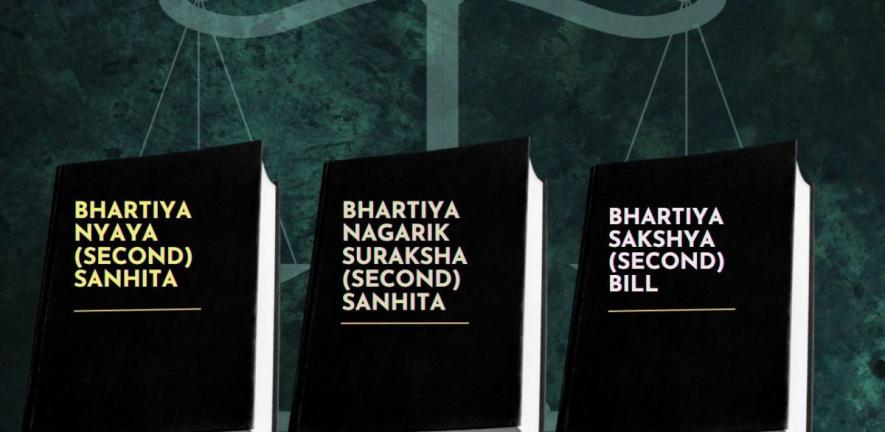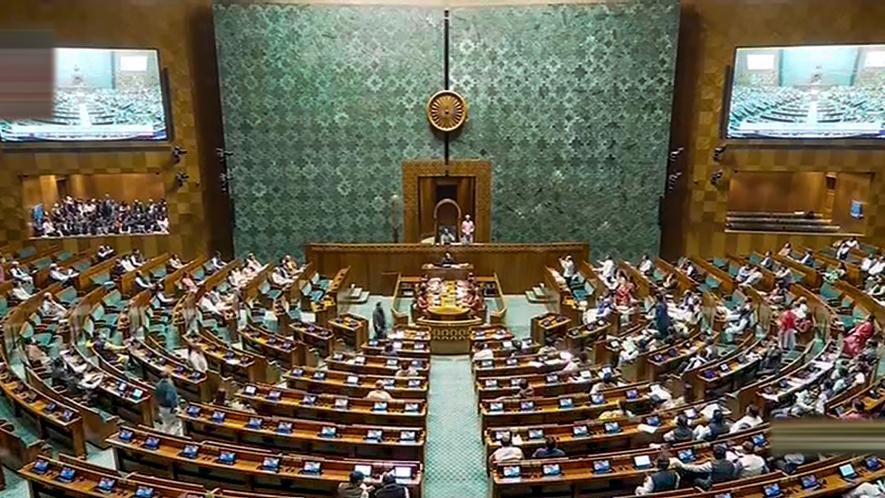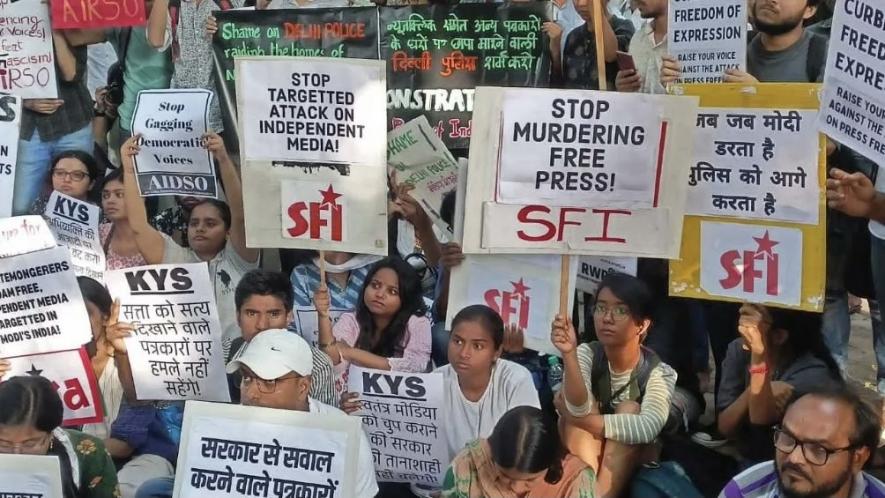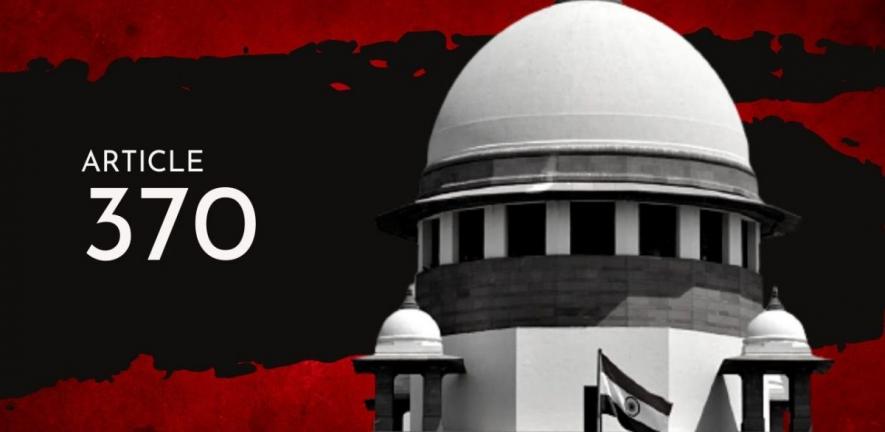INDIA
The Three New Criminal Laws Betray a Narrow Spirit of Nationalism

The vaulting ambition of Prime Minister Narendra Modi to overturn the existing structures is the hallmark of his being at the helm in the last nine years and more.
Three new laws have replaced the Indian Penal Code (IPC), 1860, the Code of Criminal Procedure Act, 1973 and the Indian Evidence Act, 1872 in the form of the Hindi-titled Bhartiya Nyaya (Second) Sanhita (BNS), Bhartiya Nagarik Suraksha (Second) Sanhita (BNSS), Bhartiya Sakshya (Second) Bill (BSB) respectively.
Union home minister Amit Shah, replying to the debate in Lok Sabha on Wednesday on the three Bills, argued like a right-wing nationalist politician that the colonial-era laws were meant only to defend British interests and that these new laws have been drafted to deliver justice and not just punish as was the intent of the earlier laws.
Shah indulged in partisan rhetoric. He said, “Under the leadership of Modiji, I have brought Bills that lay emphasis on Indianness, the Indian Constitution and the well-being of the people. The laws are being changed in the spirit of the Constitution.”
It is common knowledge that the Indian Constitution is in spirit an Anglo-Saxon one, with its emphasis on freedom, the rights of the people and democratic governance, which Indians never had in their 5,000-year-old history, despite Modi’s excessive claim that India is the mother of democracy.
Having said that, changes in laws, if they are for the better, are always welcome. What is to be looked at is the intent and spirit of the laws. If it is mere rewording of the old ones, it is a forgivable sin on the part of Shah and Modi. It is an infirmity of politicians that they want to credit themselves with the little things they have done and the big things they have not.
The basic principle of the English common law— the spirit behind the colonial laws— was that justice means not punishing the innocent, accepting that a person is innocent until proven otherwise and letting a hundred criminals go free rather than punish a single innocent person.
For many in India who have lived under the colonial laws before and after Independence, the Anglo-Saxon philosophy of law had no attraction.
Not that this idealistic principle of justice is alien to Indian culture. It is only that the deracinated right-wing nationalists of the Bharatiya Janata Party (BJP) kind and their admirers are not aware of it.
There is the shining example of Kannagi, the protagonist of the Tamil epic, Silappadikaram, who curses Madurai to be burnt down because an innocent man was put to death by the king, and that innocent man was her husband.
Many nationalist Indians, in their zeal to decolonise their minds, do not have the moral imagination that Ilango, the author of Silappadikaram had.
Similarly, for many Indians, especially the educated majority, the fundamental principles enshrined in the Preamble and the fundamental rights of Chapter III of the Constitution are contemptible things because they want a safe society even if it means living without basic freedoms.
This is not peculiar to educated Indians. It is a desire of many middle-class people everywhere in the world. That is why many Indians and others praise Singapore as the paradise of safety, and the absence of basic freedoms in the city-state does not matter to them.
Shah indulged in sophistry when he claimed that sedition as a crime had been removed from the new law because it was used by the British to imprison freedom fighters such as Balgangadhar Tilak, M.K. Gandhi and Vallabhbhai Patel— of course, he would not mention Jawaharlal Nehru who spent the longest time in British-era prisons because of the visceral hatred that his party and its mentor, the Rashtriya Swayamsevak Sangh, have for Nehru— but in the new law, those who speak against the country would be punished, though criticism of the government’s policies will not be because it is part of the freedom of speech.
Shah brought back sedition under a new rubric. Sedition in any democratic country is only when violent means are used to overthrow a democratically elected government, and it does not imply that you cannot speak against the country.
If a citizen says that India is a dirty country, that Indians are casteist and communal, that India’s past was in many ways unfair and unjust and undemocratic, they are not committing sedition. These are arguments that can and should be made in a free country.
The new law comes down heavily against it. It is not surprising that a right-wing BJP government, with its claustrophobic philosophy of blinkered nationalism, should be bringing in these laws.
A country that refuses to be self-critical is doomed. India became a backward country because it did not have a self-critical spirit.
The test of the pudding lies in the eating. So, whatever the merits or demerits of these new laws, it will depend on how the law and order machinery uses them and how the courts interpret them.
A colonial police structure whose main intention is to wield the baton to intimidate people can undermine the best of laws. A good law in itself is no guarantee that it will be administered justly.
A police force with casteist and communal prejudices can only inflict cruelty on helpless people. Judges who look over their shoulders at their political masters will never stand up for the wronged man or woman on the street.
Modi’s narrow-minded vision of a powerful India is at best a naïve one, and it is this naivety that lies behind the claims made for the laws by Shah.
These new laws are suspect because they emerge from a government with an authoritarian attitude, which believes in the fascist ideology of Mussolini: “Everything in the State, nothing outside the State, nothing against the State.”
Parsa Venkateshwar Rao Jr is a senior journalist and political commentator. He is the author of several books on Indian politics.
Parliament Intrusion Highlights Repression and Economic Desperation

Parliamentarians in the Lok Sabha during the Winter session of Parliament, in New Delhi, Wednesday, Dec. 13, 2023. Image Courtesy: PTI
The intrusion into the innermost sanctum of the new Parliament complex by two young men reaffirms something most of us have known for a while: the extant regime is not just sectarian and authoritarian but amateurish.
Even as vanity projects go, the Central Vista and the new Parliament building was always extraordinary, considering the finances being lavished on it and its no-stops construction through the pandemic. Also unsurprising was that the security arrangements should be so palpably suboptimal—an issue raised by many during the pell-mell process—that all it took was a small group of disaffected youths to penetrate Lok Sabha with, one must admit, considerable brio.
If the events of 13 December shone a powerful beam of light on the regime’s ineptitude, subsequent events revealed the complete disregard for due processes and contempt for democratic institutions and norms that have come to characterise the regime. Regrettably, Prime Minister Narendra Modi sets the tone for his colleagues in the Bharatiya Janata Party (BJP) and the government with his grandstanding. Now we know: Modi hai to mumkin hai; if Modi’s in the picture, it must be doable.
We’ve said this before and are saying it again: the Pragya Singh Thakurs, Giriraj Singhs and Ramesh Bidhuris are not part of a ‘lunatic fringe’. They are valued members of the BJP and Sangh Parivar mainstream who carry out the biddings of the leaders who set the stage with their unsubtle dog whistling. Rewards are on offer; witness the promotion to the Cabinet of Anurag Singh Thakur.
This context frames the response to the intrusion into the inner chamber of the Lok Sabha by two men who were, most fortunately, not intent on creating mayhem. Modi and Union Home Minister Amit Shah don’t really care about public opinion because they know that behind them are a well-funded electoral juggernaut and the majoritarian stick that seems to do the trick when it matters. Thus, Modi’s stubborn refusal to go to Manipur when it was being ravaged by riots or his refusal to make a meaningful statement on the situation in Parliament.
Nobody was seriously expecting a statement from either once it became apparent that the crisis had blown over, especially since neither worthy was in the House when the pyrotechnics happened. Any statement would surely involve taking some responsibility, and, hey, did anyone in their right mind see that materialising on the distant horizon?
As expected, we got a jejune statement from Speaker Om Birla, kind of putting his hand up; Shah kind of implied his culpability as well. But whichever way you slice it, the fact that the Speaker is in charge of House proceedings doesn’t mean he is in charge of security or who busts in through the outer gates. The Union Home Minister is singularly responsible, and he isn’t raising his hands, except to say, outside Parliament, that a mistake happened—in the passive voice, with an intransitive verb.
BJP leaders led by Shah have fixed responsibility on the Opposition. Sure. They are politicising the issue, as if miraculously, the security for the Parliament complex—bulldozed through against widespread opposition and without consultation—is not a political issue many times over.
The suspension of almost a third of Lok Sabha and Rajya Sabha members for demanding the presence of Modi and Shah to make a statement and render themselves answerable is typical of the regime. It takes no account of the fact that for members of Parliament, this is a life-and-death issue. That the trespassers intended merely to register their protest against the dictatorial and incompetent functioning of the regime is, in a sense, incidental.
Meanwhile, of course, BJP Member of Parliament Pratap Simha expectedly gets a pass despite having given the passes used to breach Parliament’s security, as has BJP MP Ramesh Bidhuri despite his invective-laden verbal attack against another MP on the floor of the House. The pattern persists. Trinamool Congress MP Mahua Moitra was expelled for sharing her password without being given adequate opportunities to defend herself, but Simha gets commiserations for doling out passes.
With the Winter Session ending on 22 December, it looks unlikely that any answers will be forthcoming. Both Parliament and the public will have to be content with airy dismissals of their concerns and questions.
The incident does raise an important question, though. What compelled regular citizens, going by the reports about their general situation, to stage a protest that was, first, purely symbolic since it won’t result in deep introspection to solve the myriad problems they wanted to draw attention to. And second, it was a protest that will undoubtedly lead to a long prison term and most likely a permanently blighted future. Let us remember that these are still youthful people, not terrorists or criminals.
Clearly, there is a problem caused by a lack of opportunities for the educated, coupled with an increasingly constricted space to legitimately air grievances. In other words, we are living under an increasingly authoritarian regime acquiring all the hallmarks of a police state, which cannot provide avenues of advancement to the educated youth or the means of proper subsistence to a huge number of people.
Check the recently released United Nations report that says almost 74.1% of Indians—that works out to 104.3 crore people—cannot afford a healthy diet. Whatever the denial-prone regime might say about methodologies and data, it cannot repudiate that Modi announced the extension by five years of free rations to over 80 crore people during the recent Assembly election campaign.
This is likely to be an underestimate of hungry people given that the regime has refused to conduct the decennial census, now overdue two years. You don’t have to be a member of Mensa International to figure out that it’s not being held because the regime thrives in post-truth situations that afford an infinite scope of plausible denial.
Thus, the people who got together to tear down the security apparatus, or whatever Keystone version passes for it, have highlighted the fundamental problem facing the nation: misgovernment of colossal proportions policed by jackboots to repress democratic protests of any kind.
It’s a pity that matters have come to such a pass, but let’s not pretend we hadn’t seen it coming.
(The author is an independent journalist and writer. The views are personal.)


